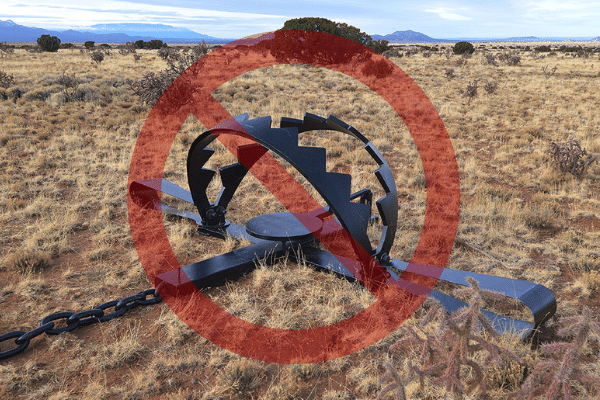Current work in wildlife, rivers, public lands, and climate
Press Releases
Governor Lujan Grisham signs bill banning traps, snares, and poisons on New Mexico public lands
Called “Roxy’s Law” in honor of a cattle dog who was strangled to death in a neck snare on public lands in 2018, this new law will go into effect in 2022 and will save untold numbers of native wildlife—as well as recreationists and companion animals—from cruel and indiscriminate traps, snares, and poisons on public lands across the Land of Enchantment.
Since 2008, private trappers in New Mexico have killed nearly 150,000 native wildlife species such as bobcats, swift foxes, badgers, beavers, ermine, and coyotes. Critically endangered species, such as the Mexican gray wolf, have also been killed and injured in traps, including two wolves caught in traps in New Mexico in the past six months.
“This is a monumental victory and a tremendous day for native wildlife in New Mexico and for the public lands that they call home. It’s also a day on which the Governor has signaled that outdoor recreation and public safety are critical to New Mexico’s economic future,” said Chris Smith, southern Rockies wildlife advocate for WildEarth Guardians. “Getting this bill signed into law has been a priority for WildEarth Guardians for a decade. We applaud every citizen advocate and elected official who made this possible over the last decade. It is wonderful to catch up to our neighbors in Colorado and Arizona and show other western states the way forward in terms of respecting wildlife and protecting public lands.”
